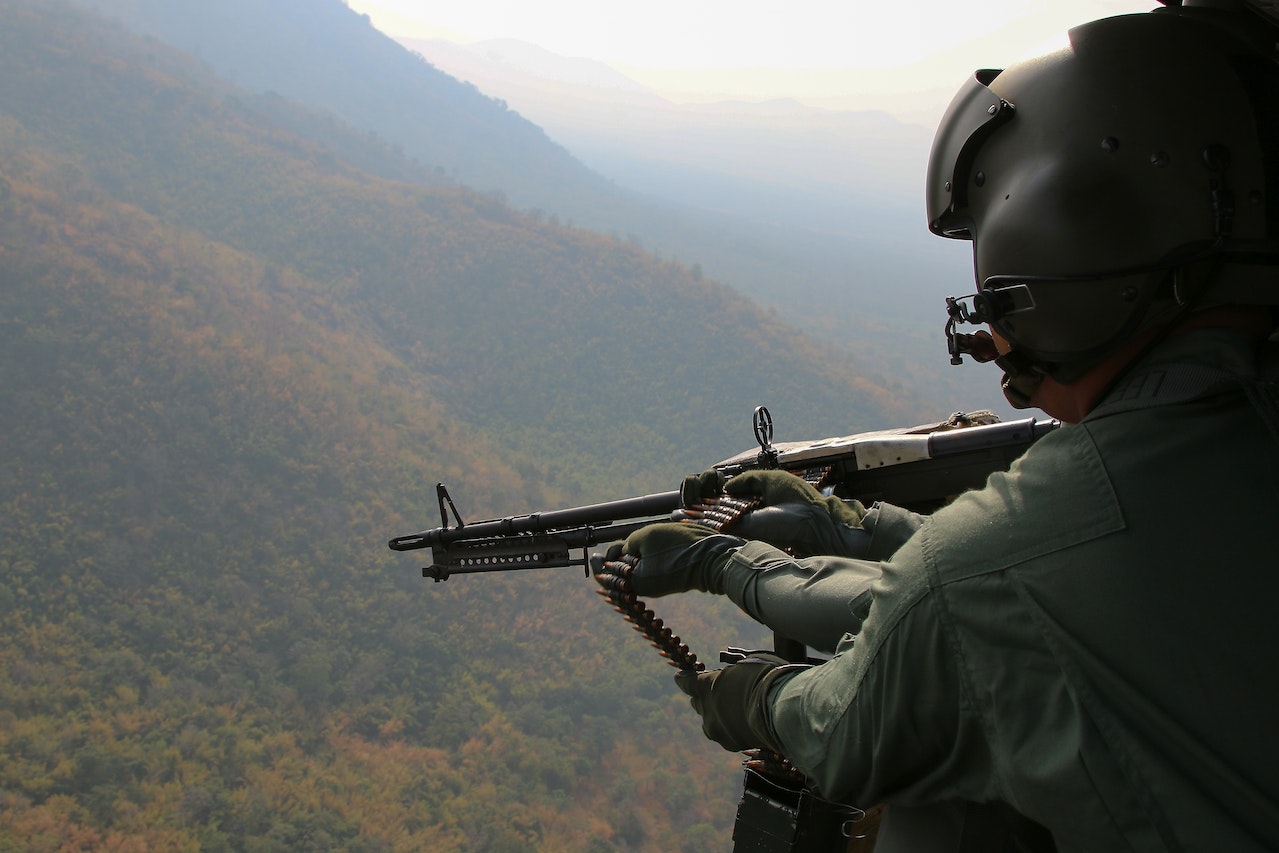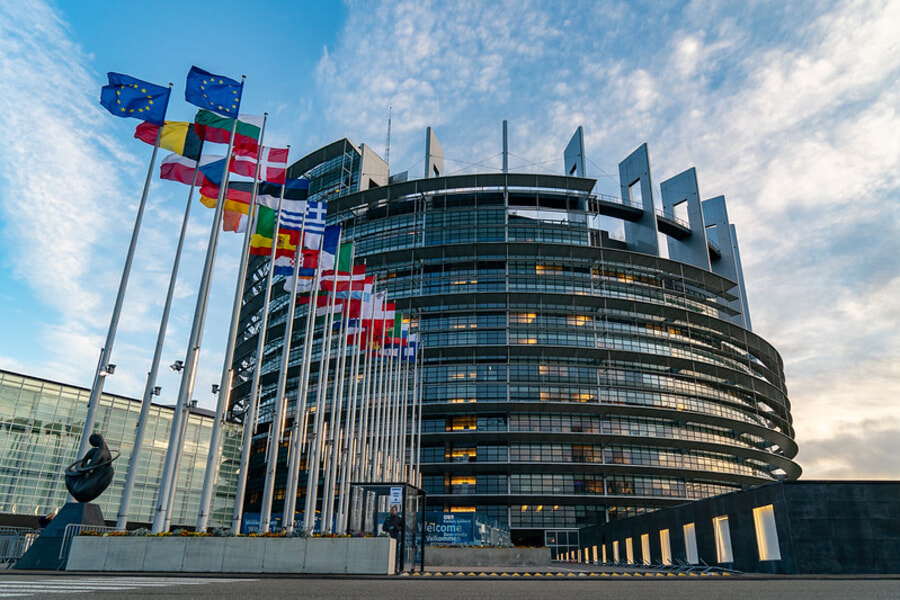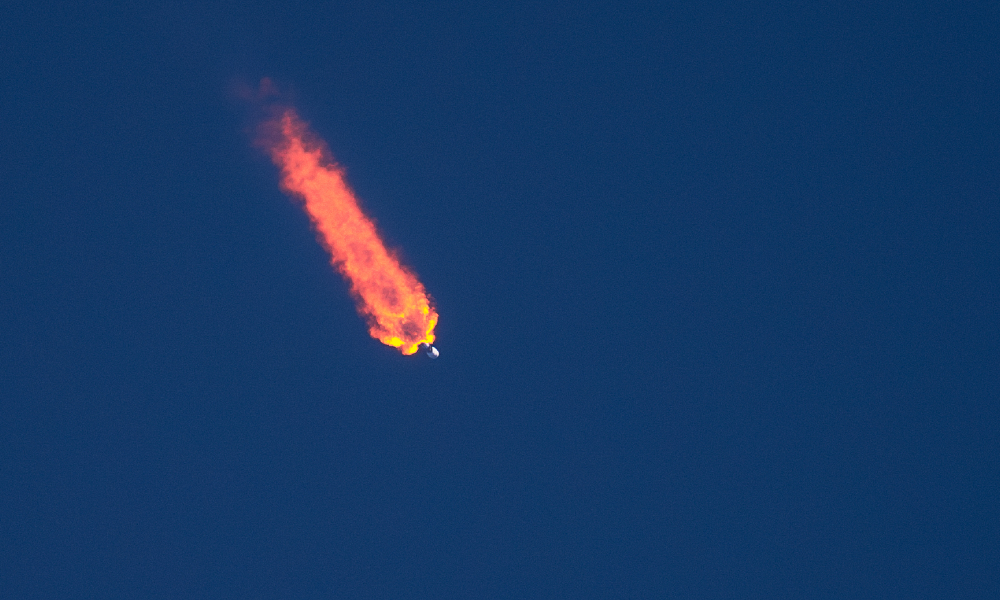It Is the Player, but Mostly the Game
While Viktor Bout—the notorious Russian arms dealer that the U.S. is offering up in a prisoner swap—is likely a spent force, the illicit arms trade remains a threat. The story of Bout’s network, and his eventual capture, highlights the challenges in tackling this deadly trade.

Earlier this summer, the United States offered to free convicted Russian arms dealer Viktor Bout in exchange for Moscow’s release of two American nationals: Women’s National Basketball Association star Brittney Griner and former Marine Paul Whelan. While it remains unclear whether the prisoner exchange will go through, Bout’s possible release is politically contentious—and understandably so. The proposed deal has raised questions about the proportionality of effectively swapping “a death-dealing arms merchant for an athlete who may have vaped,” as well as concerns about what impact Bout’s release could have on international security.
Yet the so-called Merchant of Death is unlikely to take up his activities where he left off. The debate over Bout’s release, however, is a timely reminder that the modus operandi he used to conduct much of his activity, and many of the loopholes and opportunities he exploited, remain available to his less famous successors today. Dismantling this enabling infrastructure and closing these loopholes needs to be at the heart of the conversation on preventing a repeat of Bout’s activities and countering those who follow in his footsteps.
Bout’s Business Empire
Bout, a Russian national and former Soviet military officer, exploited the large surplus arms stocks and chaos in the wake of the collapse of the Soviet Union to become the most notorious arms dealer of the 1990s and 2000s. Over the span of almost two decades, he transferred arms to conflict zones, dictators, warlords, and terrorist groups using a large fleet of Soviet-built cargo planes. In 2008, he was arrested as part of a U.S. Drug Enforcement Agency (DEA) sting operation in which Bout attempted to transfer surface-to-air missiles to “Colombian guerrillas” played by DEA agents. Bout was subsequently sentenced to 25 years in a U.S. prison.
Throughout the 1990s and 2000s, cargo planes delivering arms into various conflict zones were increasingly linked to Bout’s network by a range of nongovernmental experts. Western intelligence agencies had been aware of Bout’s activities since the mid-1990s, but a combination of limited affront to national security interests, bureaucratic inertia, and a desire to watch and learn from his activities likely delayed action against his networks. Indeed, an incomplete picture of Bout’s links to the Russian establishment, and the competing interests of U.S. intelligence and enforcement agencies, makes discerning the exact reasons for inaction against Bout’s networks challenging.
In practical terms, Bout’s network relied on constant obfuscation efforts as he built a complex web of front companies to hide financial flows and the ownership and activities of his aircraft. He registered his companies and planes in a variety of jurisdictions with weak oversight and funneled his earnings in a similar manner. He exploited lax regulatory environments, weak enforcement efforts, and jurisdictions rife with corruption. More broadly, his network benefited from the ambiguity and transnational nature of the international arms trade at the time. Amid limited international initiatives to counter arms trafficking and challenges in applying national legislation and enforcement capabilities to an inherently international criminal activity, such an illicit enterprise could thrive.
Not the ’90s Anymore
A lot has changed since Bout’s heyday, making it unlikely that such an audacious and widespread arms smuggling undertaking could be repeated successfully by Bout or his contemporaries. For one thing, Bout’s Rolodex of customers has become outdated, his name burned, and his fleet of aircraft long decayed since his arrest over a decade ago.
The operational context has also evolved. The surplus of Soviet weapons that made their way into the gray and black arms markets following the collapse of the Soviet Union—and that formed the bulk of those systems offered by Bout’s operation—has largely been sold off, become redundant, or been subjected to greater oversight. Indeed, in order to sustain its military forces in Ukraine, Russia has dusted off an increasing number of mothballed Cold War weapons systems. Indeed, new Russian actors involved in illicit trafficking operations have emerged, particularly in Africa where Bout’s business thrived.
Considerable progress has also been made in strengthening international and national controls on the trade in arms and weapons-related technologies—in part, as a result of the shock caused by networks like Bout’s or that of Pakistani nuclear scientist Abdul Qadeer Khan, who peddled nuclear technology to states such as Iran, North Korea, and Libya. Particularly the 2014 Arms Trade Treaty, to which 111 state parties are now party, has sought to establish international standards and reduce illicit arms transfers.
The information environment has also progressed significantly. The ability to track ships and aircraft like Bout’s—including those that may be transporting weapons-related or other illicit goods—is now available to anyone with an internet connection, and tracking is much easier than it was for those nongovernmental investigators who were keeping tabs on Bout over a decade ago. These opportunities have seen nongovernmental organizations shine a light on the activities of illicit networks from afar, showcasing capabilities that were previously the preserve of state intelligence agencies.
Granted, the decision to release Bout from imprisonment is still a morally complicated one that presents certain risk. Bout helped fuel some of the deadliest conflicts of the 1990s and early 2000s, making him indirectly responsible for thousands, if not hundreds of thousands, of deaths. He enabled a range of brutal dictators. In contributing to such widespread and obscene human rights abuses, his business incurred truly staggering human costs. Bout also undoubtedly has an unparalleled understanding of how to run a global black-market arms dealing operation.
As Russia comes under increased sanctions and struggles to procure components and maintain Putin’s war machine in the face of arms embargoes, Bout’s skill set may be useful to Moscow. His skills here, however, would form a minor addition to an ecosystem that has sought to illicitly obtain Western technologies in some form for over a century. Nonetheless, it’s fair to say that releasing a Russian arms trafficker while trying to arm Ukraine against Moscow’s invasion risks sending “mixed messages.”
The More Things Change …
Yet the heart of the problem is not so much Bout himself but, rather, the persistent failures by national governments to address the loopholes that allow traffickers to conduct their activities. While the risks posed by Bout are likely to be limited, the tried and tested modus operandi used by his networks endure. Illicit networks—whether trafficking arms, weapons of mass destruction components, narcotics, or human beings—are akin to living, breathing, and thinking organisms. They adapt their activities based on the actions of enforcement agencies in cycles of “competitive adaptation,” with both traffickers and those trying to stop them constantly seeking novel ways to outwit each other.
This doesn’t quite lead to “rules” of the game. Instead, it provides a persistent cat-and-mouse dynamic. And the governments are at a consistent disadvantage: As seasoned bureaucrats will know, the cogs of regulatory reform are slow in action. It is therefore unsurprising that the more nimble criminal networks are often able to adapt before export controls, government enforcement efforts, and intelligence agencies can manage to disrupt their activities.
Fundamentally, today’s proliferators and arms smugglers continue to rely on many of the same tricks of the trade and enforcement loopholes that Bout did two decades ago. Numerous opaque company registries around the world continue to allow proliferators to hide between complex front company structures. Countries with open ship registries, which allow ship owners to register their vessels there without having any clear connection to the country, lend their national flags and an air of legitimacy to vessels engaged in illicit trade. Corporate service providers, accountants, and lawyers in the pockets of traffickers help to set up and grant credibility to these complex obfuscation operations.
These loopholes have also enabled sanctioned states to continue procuring and exporting arms in breach of arms embargoes. North Korea and Iran continue to rely on precisely these kinds of complicated corporate and financial networks to move goods and money around the world to illicitly acquire missile and nuclear weapons technology. Russia has used similar tactics to obtain Western technology for its military equipment, despite expanding sanctions and trade restrictions. These networks use so many of the same obfuscation tactics as those used by Bout 20 years ago—precisely because they still work.
Furthermore, any cooperation at the international level to counter these illicit activities is becoming increasingly difficult to secure. Back in 2005, Bout and parts of his network were sanctioned by the U.N. Security Council for their activities in Liberia. Cooperation among the permanent five members of the council has also allowed arms embargoes to be imposed on a range of states—including Iran and North Korea—albeit measures that have historically struggled to see implementation. These kinds of consensus would be highly unlikely in today’s politicized environment, especially after Russia’s invasion of Ukraine. This discord was demonstrated by Russia’s and China’s outright vetoes of a May 2022 draft resolution to impose additional sanctions on North Korea following its latest missile test.
What Can Be Done?
Preventing a repeat of Bout’s heinous crimes—either by him or, far more likely, by new traffickers and networks—will require more systemic efforts than keeping a single smuggler in prison, no matter how prolific he is, nor how just his incarceration.
Of course, bringing these black-market dealers to justice certainly plays an important role in countering illicit networks. Having served jail time, Bout is in some ways the exception rather than the rule, given the large number of his peers who have escaped prosecution. Strengthening national investigation and prosecution capabilities when it comes to arms trafficking, as well as expanding mechanisms for the exchange of information between states and for transnational law enforcement operations against these networks, can go a long way to curtailing the activities of traffickers like Bout.
The U.S. government has sought to develop a suite of extraterritorial law enforcement tools, such as the sting-and-lure operations of the kind that ultimately caught Bout, information efforts using FBI wanted posters and other means, as well as civil asset forfeiture to seize proliferators’ funds in U.S. correspondent banking accounts. Such tools have arguably made some overseas-based elements of these illicit networks more vulnerable to the “Long Arm” of U.S. transnational law enforcement efforts. The U.S., however, is an exception in its use of extraterritorial law enforcement and has faced criticism from some states that host these actors.
Engagement with the private sector is also key. Banks, manufacturers, exporters, and facilitators—like lawyers and corporate service providers—are on the front lines of such illicit activity and are thus central to either enabling or preventing it. Providing private-sector entities with the information and tools they need to identify and counter the obfuscation tactics used by traffickers and proliferators like Bout is key to countering such activity.
Data on corporate registrations is also critical information that needs to be made more readily available to the private sector. Trying to identify criminal elements within the complex webs of corporate infrastructure they hide behind is difficult enough. Doing so without access to verified, up-to-date, and easily accessible data on company ownership—as remains the case in many jurisdictions—is tantamount to looking for a needle in a haystack while wearing a blindfold.
Finally, states need to take their responsibilities to implement and enforce arms embargoes seriously. Efforts should be made to further universalize the Arms Trade Treaty and improve compliance with other international regimes aimed at combating illicit trade in small arms and other weapons systems. This includes U.N. Security Council Resolution 1540, U.N. sanctions on North Korean and Iranian nuclear and missile proliferation activities, and the standards set out by the Financial Action Task Force—the global standard-setter on combating financial crime.
Concerns about what Bout’s release could mean for international security are understandable. But the individual threat that he poses in exacerbating the illicit arms trade is likely to be limited, and the challenge more systemic than simply ensuring his continued imprisonment. The degree to which Bout and others like him are able to continue their operations depends first and foremost on the willingness of states to take a hard look at the ways in which they continue to allow or actively facilitate the illegal movement of arms, as well as their readiness to take the measures necessary to fundamentally alter the playing field.



.jpg?sfvrsn=5067f307_5)


